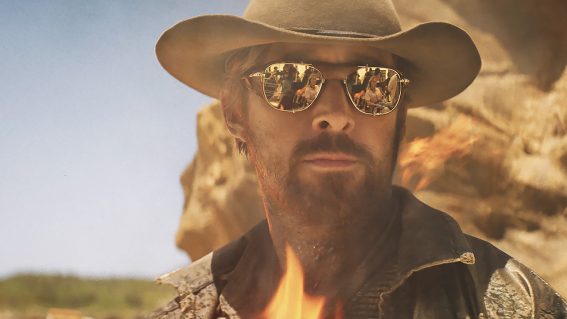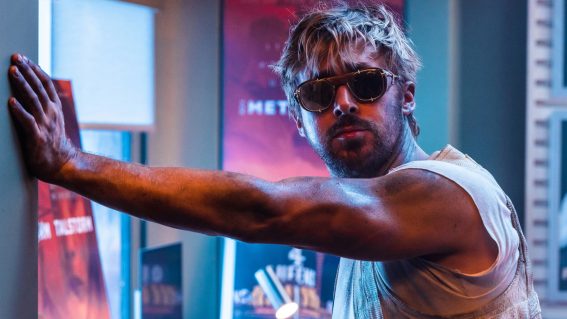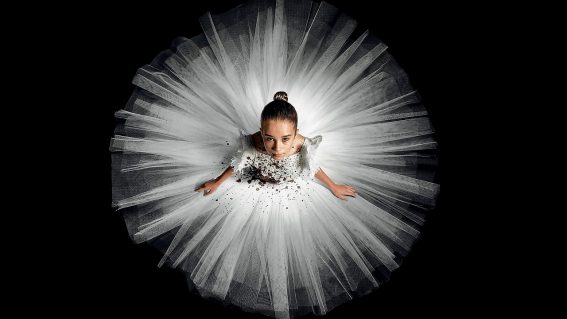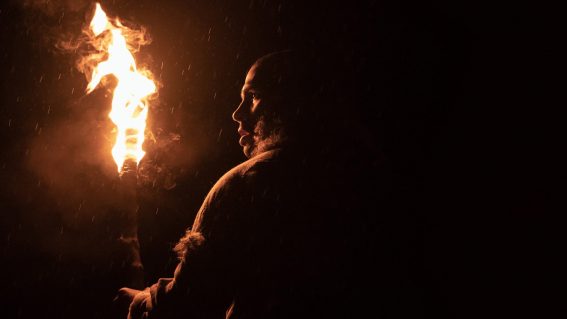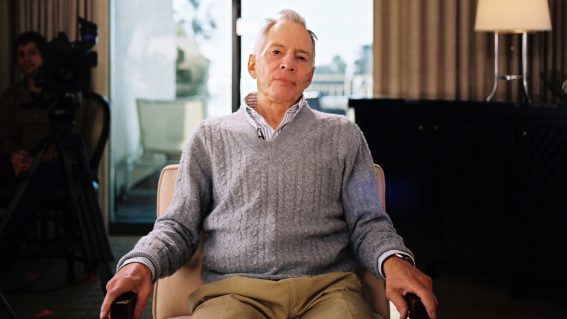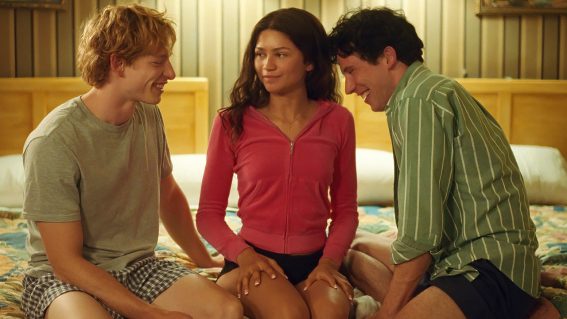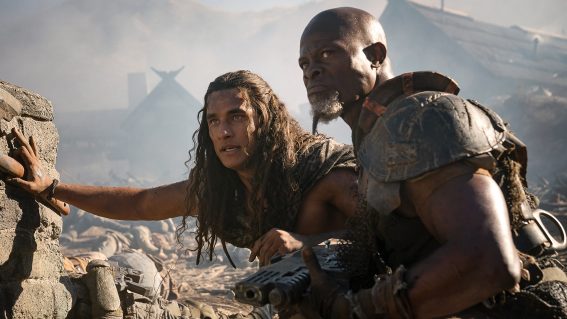Weinstein investigation true story She Said is a reminder of the strength of women united

Carey Mulligan and Zoe Kazan play the New York Times reporters who broke the bombshell Harvey Weinstein scandal in She Said, a true story that goes behind the headlines. Mulligan is the tightly-scripted and compassionate film’s core strength, writes Cat Woods.
Though it may be defined as a #MeToo movie, She Said manages to avoid the over-earnest recollection of true events to genuinely deliver a well-paced, dramatic screen experience.
The foremost challenge for German director Maria Schrader (winner of a Primetime Emmy Award for Outstanding Directing for Unorthodox on Netflix in 2020) and English writer Rebecca Lenkiewicz (most recently the lead writer on 2020 series Small Axe) was to craft a dramatic, engaging drama from a story that exists in our recent memory—and one that, arguably, is not finished for the many women who came forward, or didn’t.
You can keep your caped crusaders and hyper-buffed heroes. Journalists Jodie Kantor and Megan Twohey, as portrayed by Carey Mulligan and Zoe Kazan, are the sort of underdog superheroes who truly save lives and defend democracy.
In 2017, The New York Times’ investigative journalists Kantor and Twohey published their groundbreaking investigation into Harvey Weinstein’s many heinous abuses of women. Just as nauseating as his physical and emotional manipulation of women was the system that enabled his ongoing abuses to take place: the victims who were shamed into silence, the industry insiders who faced losing their jobs, the creatives who depended on Weinstein financially. Now serving a 23-year prison sentence, Weinstein’s behaviour served as a platform from which many more women have emerged to tell their own stories of abuse, manipulation and exploitation.
The undeniable core strength of She Said is Carey Mulligan. As the curious, inquiring and determined Twohey, she is both eminently relatable and heroic. Things kick off in 2016 as Twohey has convinced a few women to speak to her about being the victims of Donald Trump’s sexual abuse. It’s a risky business since Trump is a presidential candidate, though we have to marvel at this anew as the bumbling Trump phones Twohey to furiously, vehemently deny his guilt.
His unique, unwittingly hilarious, voice raging through her phone speaker into her apartment kitchen as her husband watches, bemused, is one of the many small moments of laugh-out-loud reprieve in what is ultimately a dark, sometimes horrifying, storyline. If this element of the movie was designed to remind viewers of the dangers of Trump running for President again in 2024, it’s a fait accompli.
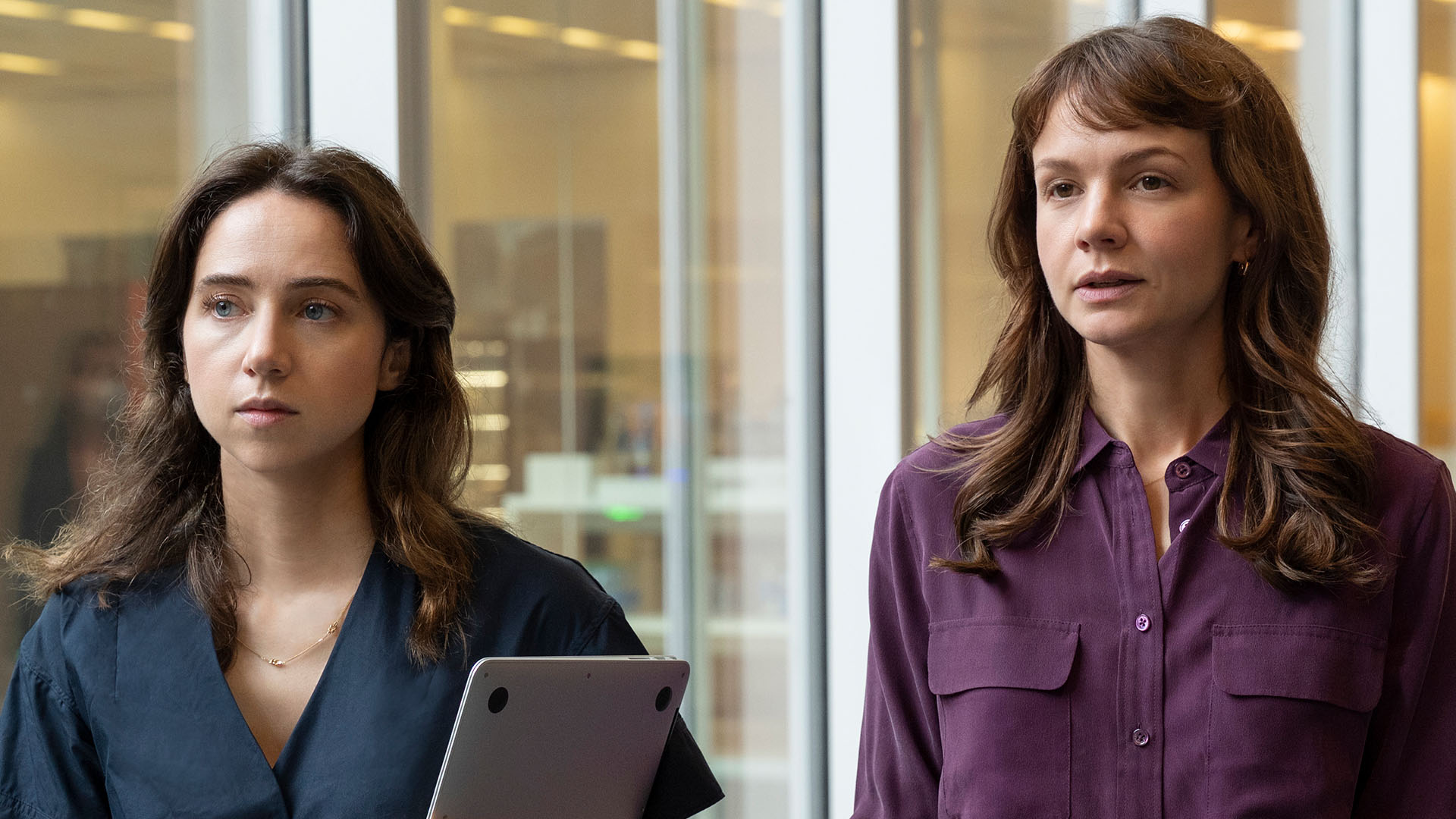
As Twohey, Mulligan is so perfectly ordinary on the surface that we might be fooled into underestimating her powers. She is often without makeup, her hair rattily tied up as if a last-minute thought, striding through New York city streets with a takeaway coffee cup in one hand and her phone in the other. She is almost propelled through streets, and the entrance to The New York Times building with a fierce sense of purpose.
With Twohey’s courage ascertained, we then meet her colleague at the Times, Zoe Kazan as Kantor, who is beginning to get tip-offs about Weinstein’s predatory behaviour. A phonecall to actor and #MeToo pioneer Rose McGowan—the unspoken instigator and star of this narrative—solidifies Kantor and Twohey’s commitment to investigating and revealing the horrifying extent and history of Weinstein’s abuse.
Kazan is less fierce than Mulligan’s Twohey, but no less a hero. We see her at home with her husband, scribbling into notepads, waking in the early hours of morning to phonecalls from victims, discarding half-eaten sandwiches in a rush to type out an urgent email or check a fact. There is even a moment, in the dark of a London hotel room, where she is on Zoom with her primary school-aged daughter, that drives home the horror of Weinstein’s omnipresence. What did these women do to justify being investigated, her daughter asks, are they criminals? The subsequent question from her child took my breath. No spoilers.
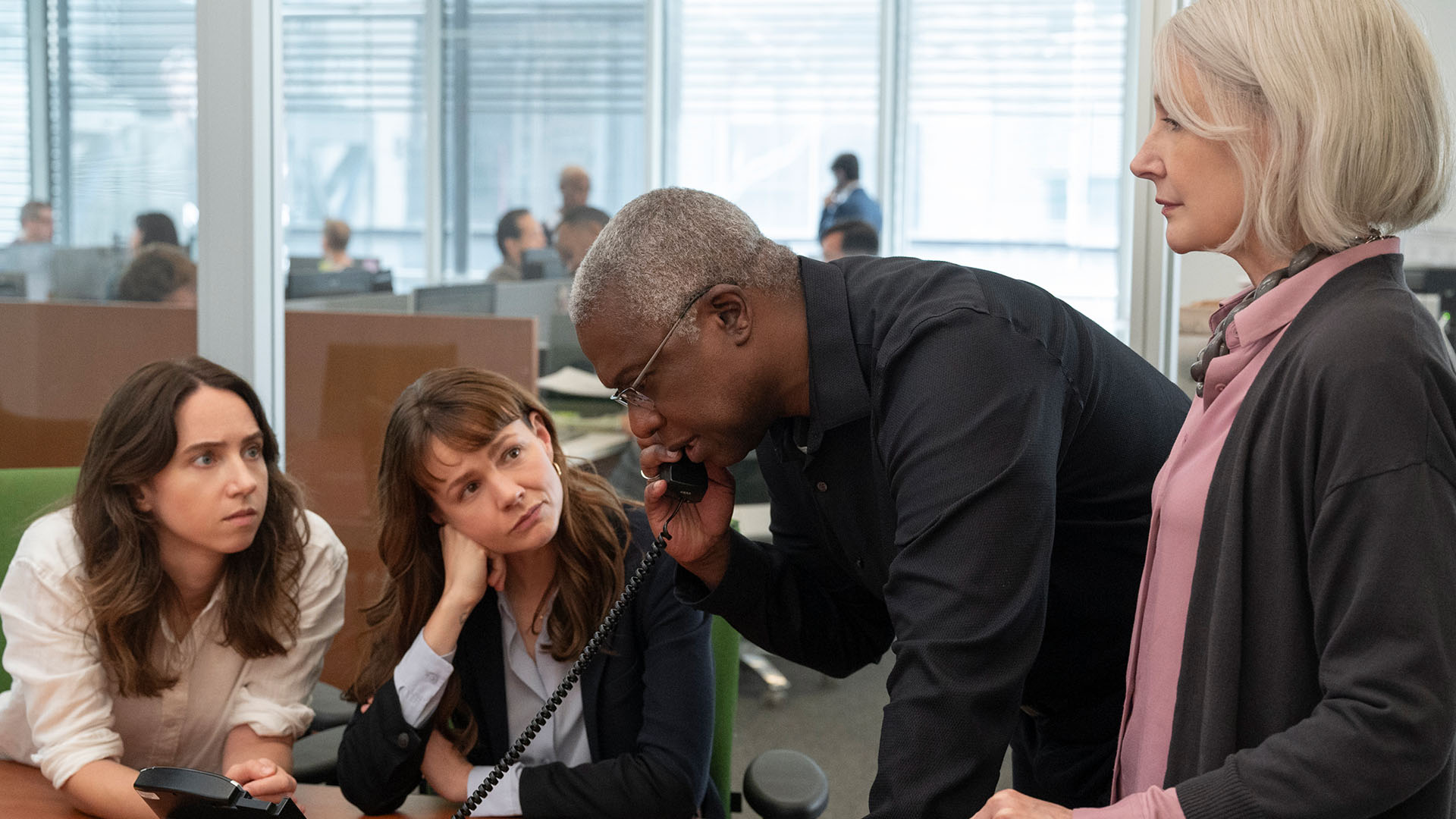
Not only does She Said showcase tightly-scripted, compassionate storytelling but it provides a compelling insight into the hectic, often fraught, newsroom environment. Andre Braugher is outstanding as veteran editor Dean Baquet, championing his journalists and fending off an increasingly fraught and haughty Weinstein. As the long-time investigative reporter and editor Rebecca Corbett, Patricia Clarkson is inquisitive, cool under pressure and evidently delighted with every small win by Twohey and Kantor, her charges.
Though Weinstein does not even appear until the second half of the movie, he doesn’t need to. His monstrous, grotesque threat pervades the story in his physical absence. Like the damage he’s done to so many women, it is an invisible, scarring violence that we are aware of without being able to capture and control.
As we know from movies of varying success in the last decade, the re-telling of news headline-events can be revelatory or, adversely, overblown affairs that are either trying to avoid stepping on toes or smashing toes completely.
Indeed, Bombshell, starring Nicole Kidman, Charlize Theron and Margot Robbie had all the phenomenal acting talent present but ultimately fell on its sword with a superficial, scaredy-cat attitude to truly presenting predatory men and the system that enables their privilege and entitlement to run roughshod in the media, screen and arts world (if not the world, generally).
Whereas Bombshell was overshadowed by the overt prosthetics, wigs and hyper-earnestness of the script and acting, She Said is (wisely) not a vehicle for its star actors to become copycats of real-life journalists and actors.
She Said errs toward the honest, blow-by-blow, various narratives wefting into one another approach of Spotlight. The Oscar-winning Spotlight, starring the exemplary Michael Keaton, John Slattery, Mark Ruffalo and Rachel McAdams, depicted the investigation by The Boston Globe into systemic child sexual abuse by Roman Catholic priests. That movie, too, was based on real life events (The Globe won a Pulitzer Prize in 2003 for its coverage).
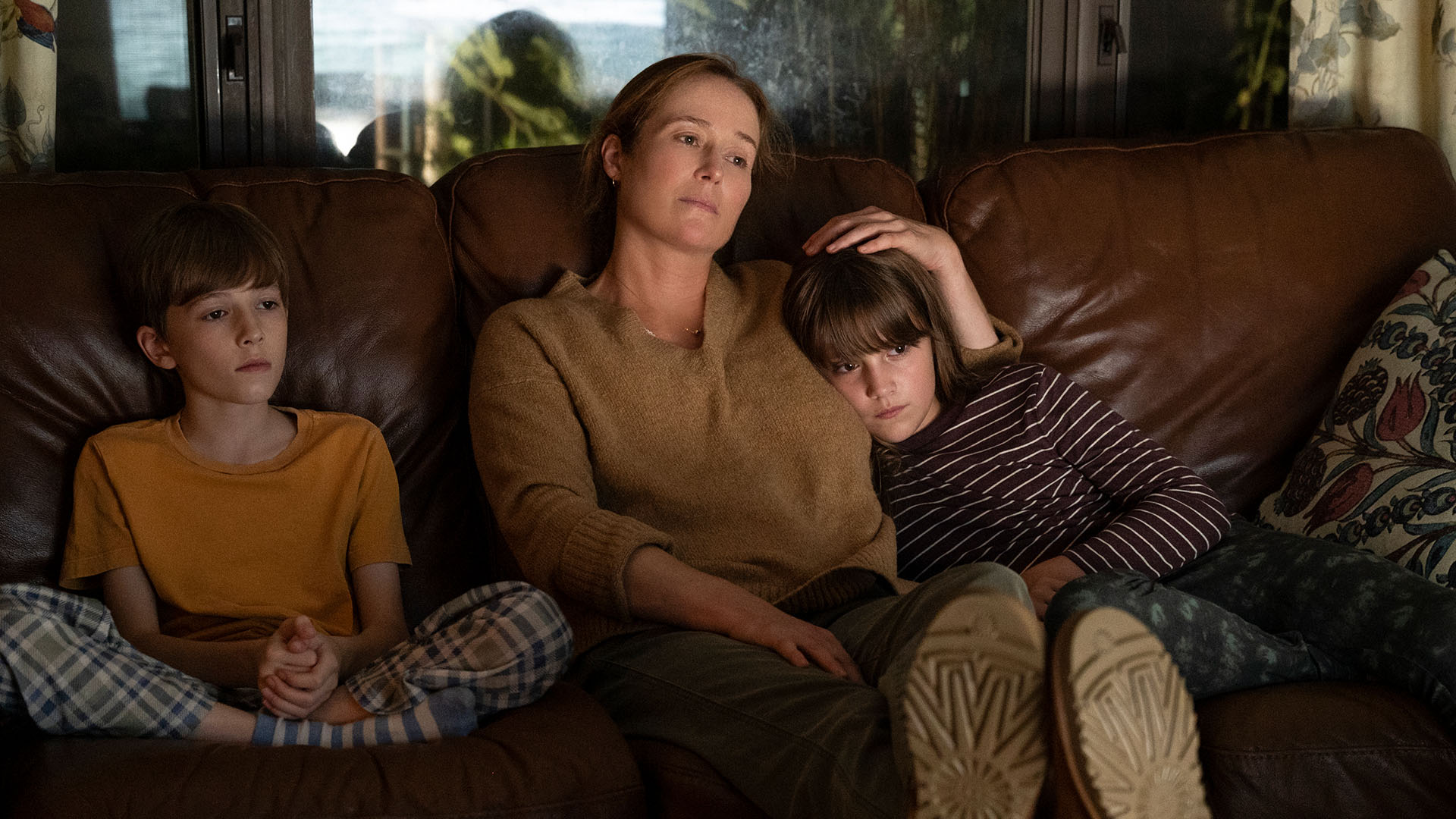
In She Said, Ashley Judd bravely and beautifully plays herself and she refused to bow to the victim status Weinstein imposed on her. Though Gwyneth Paltrow and Rose McGowan are key characters throughout, we never see them depicted. Samantha Morton as Zelda Perkins is exemplary, defying the NDA she signed two decades earlier to enable the New York Times story to gather documents, and Jennifer Ehle as Rachel Madden is unforgettable. Madden is facing a breast cancer-related mastectomy when she is first contacted by Kantor, then soon after by Weinstein’s nefarious network to warn her against speaking out. She is, like Twohey and Kantor, heroic in her defiance.
She Said reminds us of the necessity and urgent need for journalism to ensure the defence of civility, democracy and integrity. It is also a reminder of the strength of women united.





